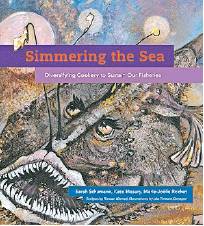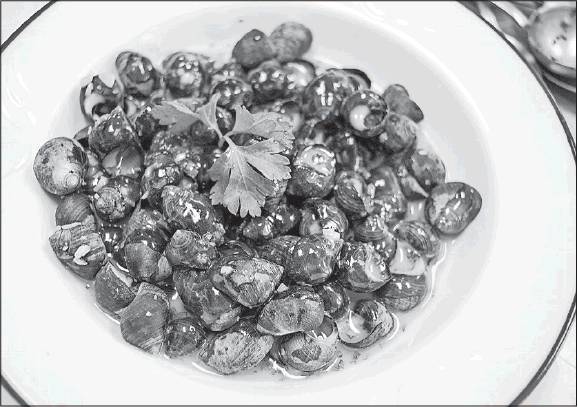COOKBOOK
A guide to how to eat more local fish
Recipes for what’s plentiful in New England waters but not commonly prepared at home
By Jenna Pelletier Journal Staff Writer
Seared salmon and shrimp scampi may already be in your cooking rotation, but have you ever made grilled bluefish or a razor clam salad?
A new cookbook produced as part of a partnership between Rhode Island nonprofit Eating with the Ecosystem, the University of Rhode Island and Johnson & Wales University explains how to cook those and other species of fish and shellfish that are plentiful in New England waters but not commonly prepared at home.
Called “Simmering the Sea: Diversifying Cookery to Sustain Our Fisheries,” the book, based on a French version by research scientist Marie-Joelle Rochet, includes colorful illustrations, recipes by Johnson & Wales chef-instructor Rizwan Ahmed, and narratives about local marine species and their roles in the ecosystem.
“As part of our mission, we try to get people to eat more local seafood, and a wider diversity, particularly those species that are underutilized but very abundant in our local waters,” said Eating with the Ecosystem program director Kate Masury. “One of the barriers that we see when working with consumers is that oftentimes they don’t know how to cook with those species. There aren’t a lot of recipes out there for, say, butterfish. So we were really excited to be able to showcase how delicious they can be.”
The cookbook also describes how to work with such sea creatures as kelp, mackerel, squid, skate, scup and periwinkles. Last summer, while working on the book, Masury realized that periwinkles were the one New England seafood species she hadn’t tried, so she made them while visiting her family in southern Maine.
“I grew up there, where they are everywhere, but I just hadn’t though to eat them,” she said. “I learned that they taste delicious. They are actually very sweet and a bit briny. If people like clams or oysters, they will probably like them.”
The periwinkles recipe in the cookbook describes how to steam them with white wine, butter and herbs, similar to how clams and mussels are often prepared.
Working with new species, or ordering them off the menu at restaurants, can be a fun way to expand your culinary horizons, but there’s a serious side to the book’s mission as well. Consumer demand greatly influences what fishermen catch, which in turn affects not only the availability of the species, but its predators and prey.
“The reaction can impact the whole food chain,” Masury said. “By being so selective with what we’re eating, we’re actually throwing our marine system out of balance. But if we said, I’ll be flexible and eat what’s available and abundant, we create a much healthier ecosystem, and support our local fishing communities who can go out and catch a wider variety of species.”
If your local fish market does not carry a type of fish that you’d like to try cooking, Masury suggests asking for it, as they can often be ordered from distributors. “Just by asking for it, you’re creating demand,” she said.
Details
“Simmering the Sea: Diversifying Cookery to Sustain Our Fisheries,” $20, is available at local bookstores. Go to eatingwiththeecosystem.org/simmering-the-sea for a full list, or to order.

